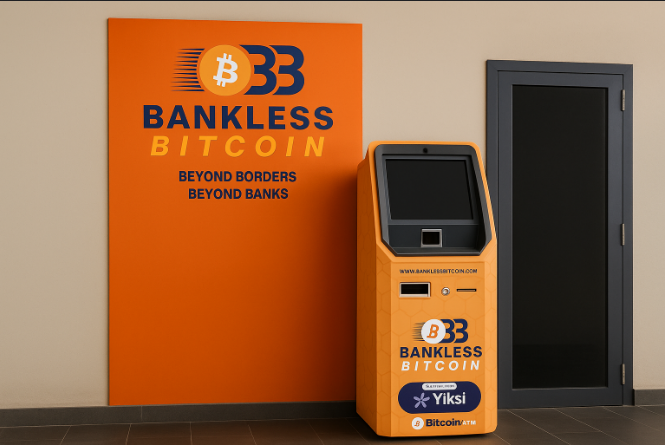In recent years, the dynamic world of cryptocurrency has captured the attention of diverse regions across the globe. One striking development is happening in Nairobi, where innovative Bitcoin ATMs, branded as “Bankless Bitcoin,” are becoming a prominent fixture in bustling shopping locales such as the Two Rivers Mall and Ngong Road in Westlands. These machines offer an easy interface for exchanging cash to Bitcoin, thus sparking interest and potential debate as Kenya begins to implement its new Virtual Assets Service Providers Act.
Nairobi’s Banking Revolution: Bitcoin ATMs and Regulatory Challenges
Kenya’s Cryptocurrency Regulation Landscape
As Kenya inches towards a more regulated cryptocurrency environment, the Central Bank of Kenya (CBK) and the Capital Markets Authority (CMA) have jointly announced that no Virtual Asset Service Providers (VASPs) have yet been licensed under the freshly established law. This announcement underscores that the National Treasury is still drafting the comprehensive guidelines necessary to initiate a formal licensing framework. Until these regulations are finalized, any entity claiming licensing is operating without legal backing, highlighting the cautious approach of the regulators.
“`html
How to Buy and Sell Bitcoin in Nairobi
Located on the ground floor of Two Rivers Mall near Levi’s store, the new Bitcoin ATM machines make cryptocurrency transactions straightforward. Managed by Bankless Bitcoin, these machines support on-chain deposits and withdrawals from any compatible wallet.
“`
Emergence of Bitcoin Usage in Low-Income Areas
Long before these ATMs made their debut in the malls, Bitcoin utilization was already unfolding in less affluent areas. AfriBit Africa, a fintech innovator, pioneered Bitcoin transactions in Soweto West, part of Kibera, back in 2022. Through this initiative, approximately $10,000 in micro-grants has been disseminated to individuals participating in community clean-up efforts. This method of payment, now used by around 200 community members, represents a financial lifeline for those without formal identification or bank accounts, providing what project leaders call “financial freedom.”
What Are the Risks and Opportunities of Using Bitcoin ATMs?
The introduction of Bitcoin ATMs transforms the ease of buying and selling cryptocurrency, akin to traditional cash machines. However, this convenience raises questions about the transparency of operator practices, the robustness of identity verification processes, and the safeguarding of customer funds post-transaction. While the kiosks are becoming popular, potential investors should consider Bitcoin’s volatility, as price fluctuations can lead to rapid losses.
Ensuring Safe and Regulated Cryptocurrency Transactions
The new VASP Act is structured to impose stringent regulations on service providers once the licensing phase begins. Among the anticipated guidelines are measures to combat illegal financial activities, with CBK and CMA jointly overseeing compliance. Key focus areas will include Know Your Customer (KYC) protocols, transaction caps, and shared regulatory responsibilities.
Though the industry is still in its early regulation phase, Treasury’s impending rules will set the stage for a balanced approach that marries consumer protection with the growth of legitimate cryptocurrency services.
“`html
FAQs About Bitcoin and Cryptocurrency in Kenya
Is it safe to use Bitcoin ATMs in Nairobi?
Using Bitcoin ATMs can be safe provided you exercise caution, such as verifying the operator’s compliance with legal requirements and ensuring the transaction process adheres to security protocols like robust identity checks.
What are the benefits of Bitcoin for individuals in low-income areas?
For individuals in low-income areas, Bitcoin can offer a form of financial inclusion, providing access to savings and transaction capabilities without the need for a traditional bank account or formal identification.
How are Kenyan regulators ensuring the security of cryptocurrency transactions?
Kenyan regulators, through the VASP Act, are crafting rules that will enforce rigorous KYC measures, establish transaction limits, and mandate compliance with anti-money laundering standards to protect consumers and uphold market integrity.
“`
Delivering comprehensive insights into Kenya’s evolving cryptocurrency environment, this analysis emphasizes the critical balance between regulatory oversight and fostering technological innovation. The information provided is meticulously developed, ensuring readers remain well-informed on the trends and regulatory dynamics that will shape the future of Bitcoin and other digital currencies in the region.

